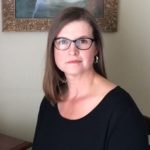
 This post comes to us from new group facilitators Leigh Bonds and Alex Gil. Leigh Bonds is the Digital Humanities Librarian at The Ohio State University where she supports research projects, provides learning opportunities for faculty and graduate students, and works with campus partners to coordinate DH efforts. Her research applies DH methods and tools to textual studies in British Romanticism and scholarly editing work. Alex Gil is Digital Scholarship Coordinator at Columbia University Libraries and Affiliate Faculty of the Department of English and Comparative Literature at Columbia University. He collaborates with faculty, students and library professionals leveraging computational and network technologies in humanities research, pedagogy and knowledge production.
This post comes to us from new group facilitators Leigh Bonds and Alex Gil. Leigh Bonds is the Digital Humanities Librarian at The Ohio State University where she supports research projects, provides learning opportunities for faculty and graduate students, and works with campus partners to coordinate DH efforts. Her research applies DH methods and tools to textual studies in British Romanticism and scholarly editing work. Alex Gil is Digital Scholarship Coordinator at Columbia University Libraries and Affiliate Faculty of the Department of English and Comparative Literature at Columbia University. He collaborates with faculty, students and library professionals leveraging computational and network technologies in humanities research, pedagogy and knowledge production.
Update: the first topic of group conversation was to settle on the most appropriate name. The new name will be the Digital Scholarship Working Group. Join us!
We are delighted to invite you to our newly formed working group! We are professionals working in roles with many titles, but a similar charge to support digital scholarship projects, coordinate community efforts, and bridge campus silos with few resources, minimal infrastructure, and informal partnerships. If we had you at hello, you can join by becoming part of our Google Group. If you would like more context, read on.
Weeks before this Fall’s DLF Forum, we sent out a call to those in positions like ours to join us for a dinner—an idea hatched at DH2017 over veggie wraps:
Are you a digital scholarship librarian? Coordinator? Digital humanities liaison? We come to libraries with many different titles and from many different backgrounds. Some of us are alt-acs with Masters and PhDs in the Humanities, some of us have MLS/MLISs, and some have other professional backgrounds. In the end, we all share one thing in common: we have been given the mandate to coordinate and support digital scholarship at our institutions without being part of a fully staffed center or institute (like Scholars’ Lab or MITH). If you are one of these “miracle workers,” then this is the dinner for you.
The response exceeded our expectations—and our initial reservation for fifteen—but we were not surprised. Following a boom of hires and re-assignments in the past decade we started noticing that a class of library worker was being born. About a year ago, a call was put out on Twitter to create an open directory of these “miracle workers.” The tongue-in-cheek moniker comes from the difficulties our positions must overcome in fulfilling our often ill-defined mandates through arduous, creative work, while being unable to escape the perception that a miracle—hard to explain or understand—was performed.
Several topics of interest emerged during our dinner discussions at the Forum:
- funding models
- filling expertise gaps
- labor
- curricular integration
- pedagogical integration
- communication channels
- complementing existing efforts by other organizations
- assessment
Encouraged by these discussions—and by the number who answered our initial call but were unable to attend—we met with the DLF staff after the Forum to discuss creating a working group.
On Friday, 8 December, we sent a preliminary invitation to those who had signed up for the open directory. Our group grew to 65 members in the first week, even before the official, public announcement. The group will liaise with existing DLF working groups to address issues related to labor (invisible, contingency, alt-ac, student, career paths, etc.) and pedagogy (instruction and curricular integration). In addition, we will have the opportunity at future Forums to propose panel sessions and workshops, and to hold working lunches or breakfasts. We also envision our group including those who have the full support of a fully staffed digital scholarship units or centers who can enrich our conversations with their experiences. We have now setup our DLF Wiki page to provide members with information about our group, to announce Twitter chats and calls for DLF Forum panel/paper sessions, and to post meeting notes, working group initiatives, and opportunities to liaise with other DLF groups like the Working Group on Labor in Digital Libraries, the Assessment Interest Group, and the Digital Library Pedagogy Group.
This is just the beginning. We have high hopes that this group—through thoughtful discussion and creative engagements (perhaps starting with an exchange on the “miracle workers” name!)—will serve to demystify our roles broadly, while giving us a space where we can share our concerns, and help each other with our very real collective work.
To join, just visit our Google Group and sign up. If you have any questions, please send us an email at bonds.19@osu.edu and agil@columbia.edu.
We look forward to working with you!
Leigh Bonds and Alex Gil
